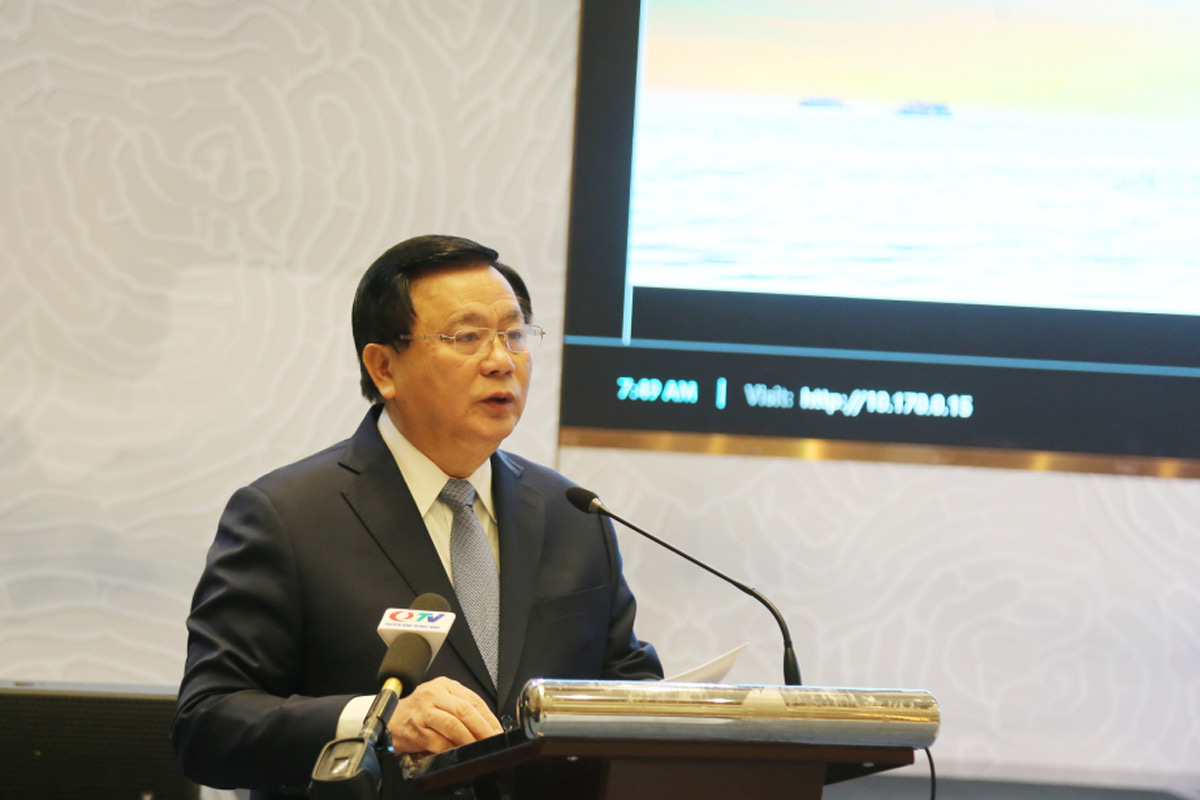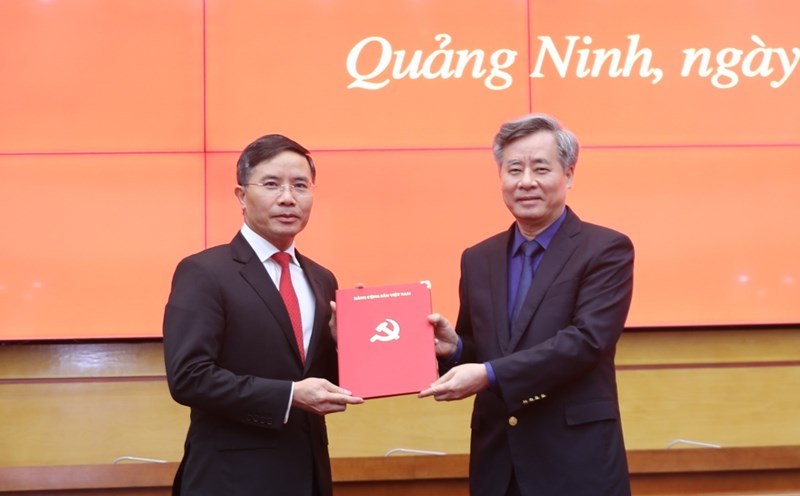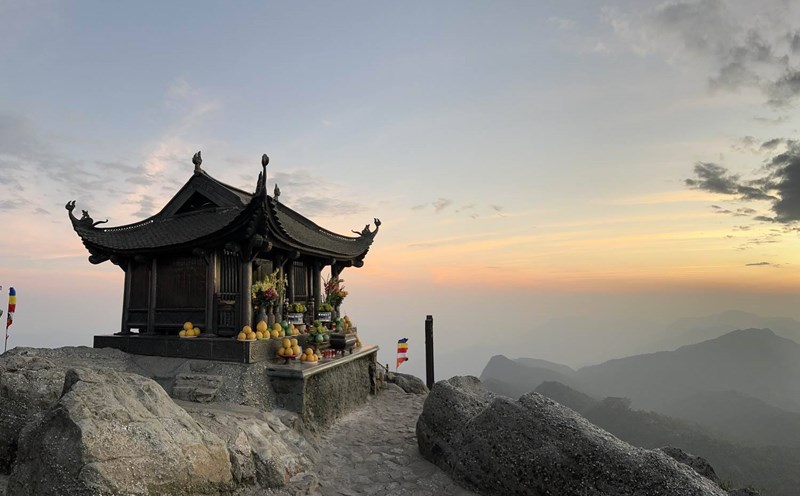On December 21, in Van Don district, Quang Ninh province, the Editorial Board of Communist Magazine, the Central Theoretical Council and the Quang Ninh Provincial Party Committee organized a scientific workshop "Some theoretical and practical issues on promoting new growth drivers - perspectives from the practice of heritage economic development in Quang Ninh province".
The workshop was attended and chaired by Party and State leaders, along with many scientists, experts, and representatives of ministries and branches.
In his opening speech, Mr. Vu Dai Thang, Member of the Party Central Committee, Secretary of the Quang Ninh Provincial Party Committee emphasized: Quang Ninh is considered as "a miniature Vietnam", the locality has many potentials, strengths, unique values, outstanding opportunities, competitive advantages from "natural" and "man-made" factors such as: Ha Long Bay, Bai Tu Long Bay, mining areas, geology, geomorphology, Yen Tu heritage associated with Truc Lam Buddhism, a network of 630 historical - cultural relics; factors related to the character and people of Quang Ninh, especially the tradition of "Discipline and Unity" of the heroic Mining Region...
Despite many achievements, in the process of development, Quang Ninh also faces many challenges, especially climate change, pressure from mass tourism and unsynchronized management affecting heritage.
Quang Ninh aims to preserve sustainable heritage, develop smart tourism, and improve the quality of human resources. The province prioritizes the application of digital technology, the development of creative tourism products, and the development of a green tourism ecosystem.
The Secretary of the Quang Ninh Provincial Party Committee hopes that the workshop will provide perspectives and practical experiences to perfect the heritage economic development strategy, contributing to building Quang Ninh into a centrally-governed city before 2030.

Speaking at the workshop, Mr. Nguyen Xuan Thang, Politburo member, Director of the Ho Chi Minh National Academy of Politics, Chairman of the Central Theoretical Council, emphasized: Over the past time, cultural and natural heritages have played an important role in the country's development. Internationally, heritages contribute to spreading Vietnam's soft power to international friends. Domestically, heritages have contributed to socio-economic development, promoting foreign affairs and ensuring national defense and security.
However, in addition to those great and proud results, it is also necessary to frankly point out the limitations and shortcomings that still exist. In some places, the role of heritage as a resource and driving force for development has not been fully recognized; the relationship between conservation and development has not been harmoniously handled, especially in regional linkages.
The preservation and promotion of cultural heritage values are still considered a task of the cultural sector. Investment resources for the preservation and promotion of cultural and natural heritage values are still very limited. The economic value of heritage has not been adequately considered.
The practice of developing the heritage economy of Quang Ninh province in recent times has shown the province's forward-thinking, leaving many valuable experiences for localities across the country. Most clearly, the province has demonstrated a breakthrough thinking and strategic vision of a sustainable development model, clearly evident right from the province's strategic planning, associated with the transition from "brown economy" to "green economy".
Pioneering in mobilizing resources and effectively applying public-private partnership (PPP) models to develop heritage economy, especially in the field of developing transport infrastructure associated with tourism infrastructure and heritage conservation.
It is recommended that scientists and delegates focus on discussing to clarify the perception of heritage economy; promote the role of subjects in heritage economic development; build and perfect institutions and policies; and share experiences to effectively promote heritage resources.
The workshop received 80 papers and many enthusiastic contributions. Delegates discussed in depth the current situation, potential, and challenges in heritage economic development in Quang Ninh, and proposed solutions to remove bottlenecks in mechanisms and policies.
The workshop contributed to creating a theoretical and practical foundation, supplementing the strategy for sustainable development of heritage economy, drawing many valuable lessons from different perspectives for localities across the country.











